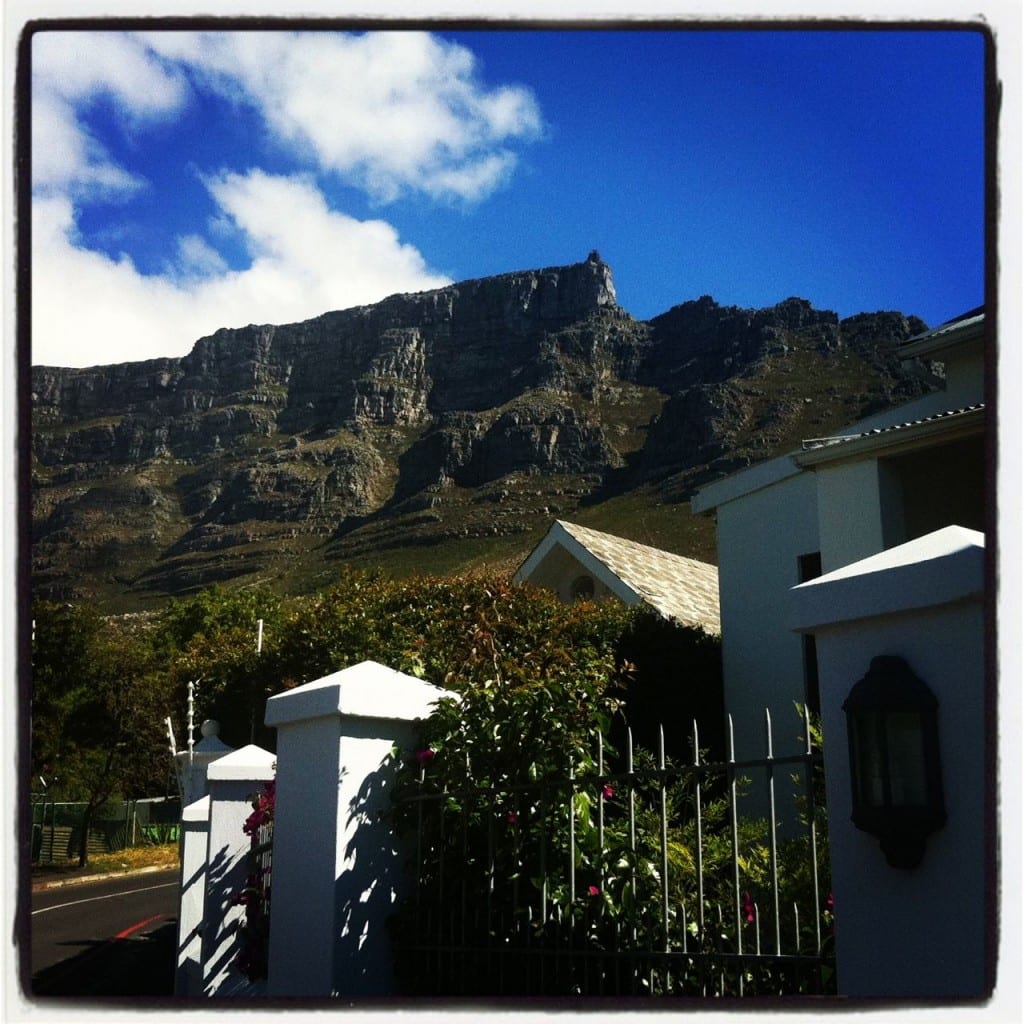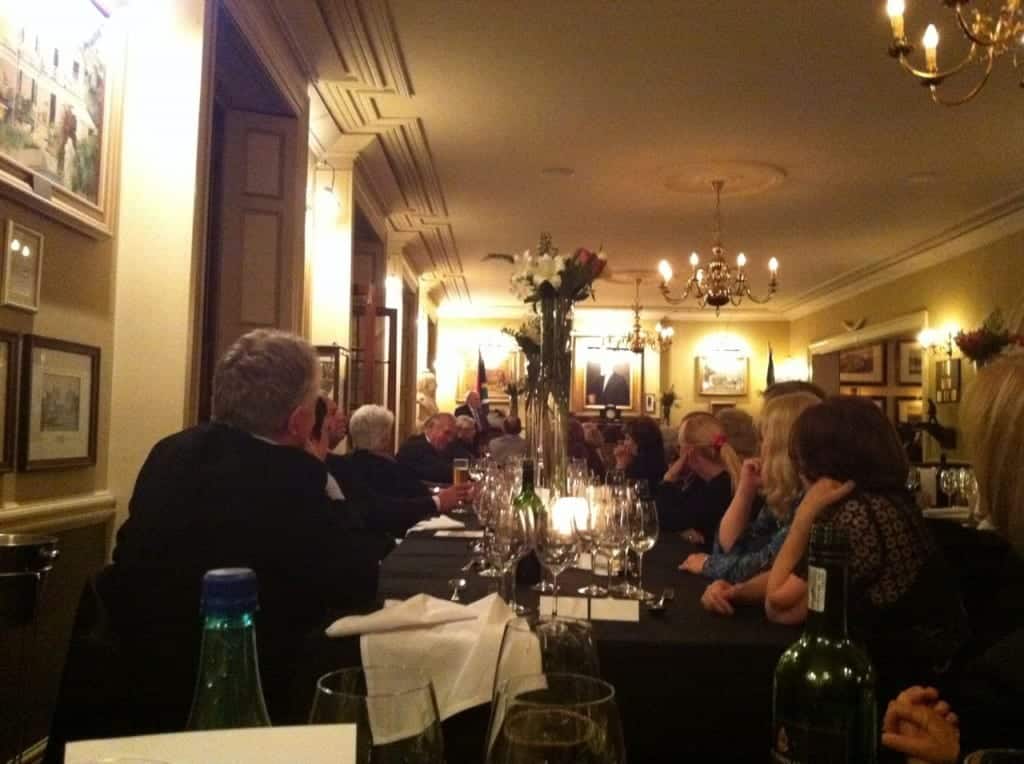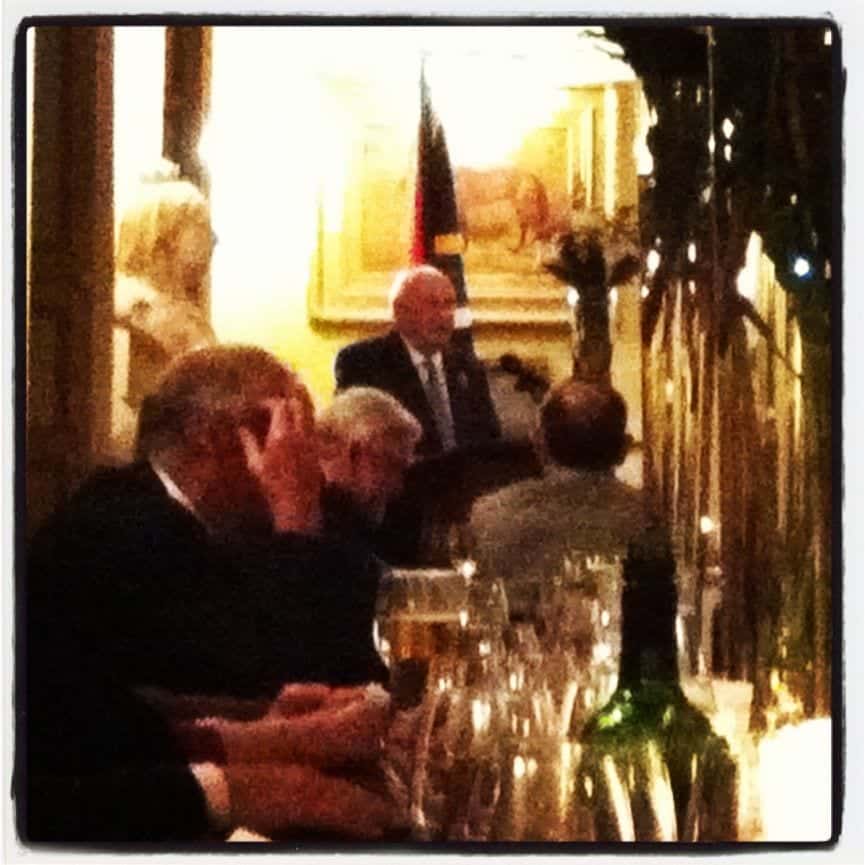Picture this.
You arrive in Cape Town, South Africa, with next-to-no set plans, a hankering for some downtime and only a faint hint about the history of the country. As always, you plan to dig into some heavy research upon arrival, first via the Web and then by asking deeper questions from friendly residents, discovering the soul of the place conversation by conversation.
Cape Town’s focal point – the imposing Table Mountain
Despite nice people, pretty scenery, modern roads and a rugged, outdoorsy feel, you sense a heaviness, a gravity, a burden, in the city that you can’t quite put your finger on. You blame Table Mountain at first because in the fog, it towers like a shrouded specter over the city, trapping you between its thick, obscured mass and the sea. When the fog clears and Table Mountain becomes more familiar, it’s clear that something more is unnerving you. Something’s off.
The weight in the air remains a mystery, until three days into a pleasant but so far unremarkable stay, you get a huge break that cracks the code of Cape Town like no date with Wikipedia ever could.
And that’s exactly what happened to me.
Dinner at the ritzy Cape Town Club
I’d been emailing about a visit to Greenways Hotel with hotel managing director Susanne, and before we’d even met, she invited me to have dinner at the exclusive Cape Town Club with about 100 movers and shakers of local society. That alone was promising from a reporting perspective, as I knew I’d have immediate access to the who’s who willing to talk about what makes Cape Town tick. But that particular night’s event was extra special because the guest speaker was none other than former South African president, Nobel Peace Prize winner and apartheid-ending hero — F.W. de Klerk.
I was barely able to throw together a dignitary-appropriate outfit, as I only packed camel-riding, safari-adventuring and shark-cage-diving attire for the Africa leg of my RTW trip, but I did the best I could and showed up for the most eye-opening night of my South African adventure. I hoped no one would notice my black Toms standing in for classy high heels!
I was introduced to a few dozen chatty, welcoming folks who eagerly told me their stories. Some were larger than life, colorful, brash and opinionated; others were more reserved but still willing to discuss everything from apartheid to Palestine to Karoo lamb to the pros and cons of the World Cup to which regions of South Africa produce the best wine. At my own table, among friends and friendly acquaintances, there were disagreements that threatened to escalate if not for the decorum of polite society.
The weight I felt began to materialize into something tangible. That night I realized the tensions of South Africa’s passionate and painful recent past remain just below the surface, and it doesn’t take more than a scratch to ignite a fiery debate fueled by opposing views on oppression.
I received an education that night, indeed.
Once we were seated for dinner, those around me talked about where they were when apartheid in South Africa came to an end and how things have changed since. It’s too complex to explain fully and of course I’m no expert, but here’s a quick lesson on what went down.
Apartheid was government sanctioned racial segregation that took place in the country from 1948 to 1994… right, only 20 years ago. Back then, South Africans were separated into four groups – native, white, colored and Asian – and often forcibly removed from their homes and relocated to designated areas. In 1970, all groups aside from whites were denied political representation and citizenship, and the government segregated everything from education to medical care to beach access, giving sub-par service to the races deemed inferior.
President F.W. de Klerk addresses the intimate dinner party
According to Wikipedia, “De Klerk is best known for engineering the end of apartheid, South Africa’s racial segregation policy, and supporting the transformation of South Africa into a multi-racial democracy by entering into the negotiations that resulted in all citizens, including the country’s black majority, having equal voting and other rights.”
Unfortunately, de Klerk’s speech was intended to be off-the-record, so I plan to honor his request and keep his commentary to myself. I will say it sounds like South Africa, though officially freed from apartheid, has a long way to go — but hey, what country doesn’t?
In my mind, de Klerk is a modern-day Abraham Lincoln – a white guy who believed that everyone in his country deserved equal treatment and did something about it. Along with Nelson Mandela, F.W. de Klerk won the Nobel Peace Prize in 1993. It was an unbelievable honor to meet him and to hear him speak about South Africa’s progress since apartheid.
Apartheid and its effect on South Africa is complicated issue of course, one whose magnitude I can’t begin to fully comprehend as a visitor. From a travel perspective, it was fascinating to dip my toes into such a deep pool of very recent history and to share a meal with a true historic figure.
For many, the tension still remains, the wounds are fresh and the story is still unfolding, and that’s part of what makes South Africa such a powerful place to visit.



